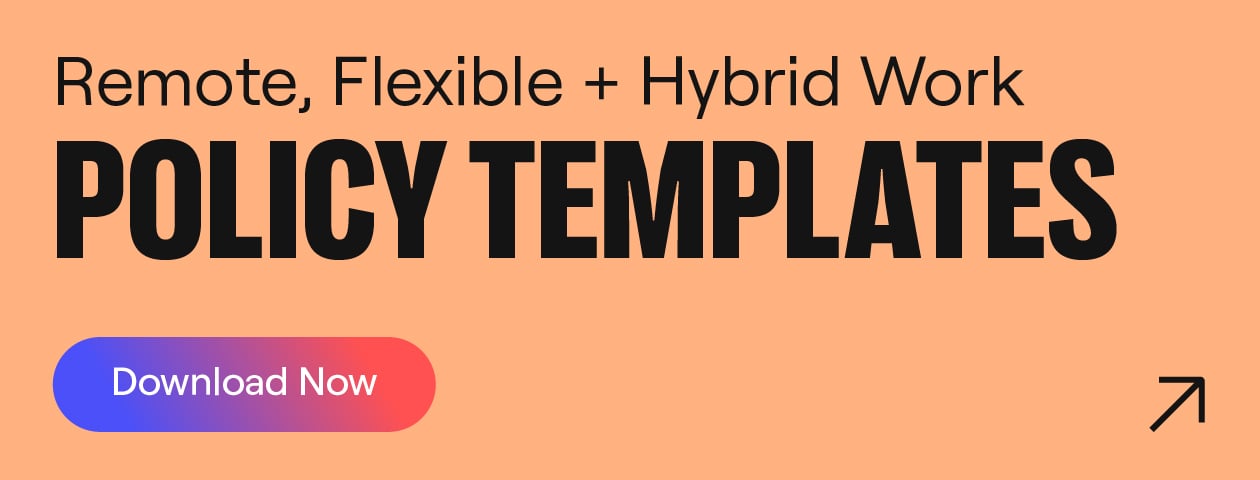It can feel impossible to break out of the traditional office and segue into a remote workplace. But after adopting new virtual collaboration tools, learning new communication styles, and mastering the at-home routine, many employees can’t envision returning to the office at all.
In our 2021 State of Remote Work Report, 71% of employees told us that they want a hybrid or remote working style after the pandemic is over. And smart companies are listening and beginning to reevaluate their in-office environments.
It’s clear that working from home is making employees happier. So we decided to dig into why hybrid working benefits everyone.
Why companies choose remote work
60% of people who worked from home during the pandemic have returned to the office in some capacity. But not all businesses are taking that approach. In fact, some companies have been working remotely since the beginning.
Integrated marketing agency Aimtal is one of those companies built around remote work. CEO and Co-Founder Janet Mesh says she was inspired to launch a business that works from home because that’s where she does her best work.
“I discovered that a lot of creative and talented people feel and work the same way and it motivated us to build the remote work company we always dreamed to work for,” Mesh says.
And so Aimtal structured around this working style, equipping team members with an arsenal of hybrid work best practices. This includes a “no meeting day” where employees can set aside a day to work heads down.
“We intentionally use, adopt, and develop tools, processes, and systems that set everyone on the team up for success no matter where they’re located in the world,” she says. “This allows the team to structure their days to align with the hours they're most creative and efficient and to make sure they have time and space to enjoy time with friends and families as well as to enjoy their hobbies and interests.”
So Aimtal’s team members get to work wherever and however is best for them. And the company benefits from a happier, well-rounded workplace.
“A WFA policy is also a competitive way for companies to be more equitable and accessible with their hiring,” Mesh tells us. “They can hire talented folks from all around the world which wouldn't be possible if they had to go to an office every day.”
Why people want to work from home
We asked people who worked from home during the pandemic what being able to work from home — at least part time — after the pandemic would do for them. Unsurprisingly, the most popular answer is that working from home gives the flexibility to support and be present with family. Most people—84%—said they’d be happier working from home.
Employees also said working from home would make them:
- 83% Better able to manage work-life conflict
- 82% Better for their mental health
- 79% Less stressed
- 79% Feel more trusted
- 79% Feel like their employer cares
- 78% More likely to recommend their company
- 75% Less likely to leave their employer
- 72% More inclined to choose one job over another
Productivity while working from home
“But aren’t remote workers just sitting on their couches all day?” Toss away that old stereotype. 90% of remote workers say they are at the same productivity level working from home than when in the office. In fact, 67% say they are even more productive while working at home.
Workers aren’t unproductive — in reality, they’re overworked.
55% of remote workers say on average they work more hours at home than at the office. 33% say they work the same hours as at the office. And only 12% say they work fewer hours than at the office. Digging further, 30% of men and 21% of women reported working more than two extra hours each day.
Employees are working significantly more, yet only 11% of managers are concerned about employee burnout. Managers need to put systems in place to enable employees to do their best work and keep the work-life balance.
Planning for work from home and hybrid environments
While the benefits of remote and hybrid work are clear, there are common pitfalls that need to be anticipated. Managers can set their teams up for success by enacting strong hybrid work policies for their employees that promote a work-life balance and put an end to burnout. That’s the ultimate benefit of a hybrid work environment—giving employees the opportunity to be their best selves.
“Everyone on our team shines and does really incredible work because they can structure their space, time, and energy to do their best work every day,” says Mesh. “I think that's only achievable because they can work remotely.”
%20(1).png)
Better meetings start here
From huddle rooms to boardrooms and everything in between, we’ve got you covered with solutions that take teamwork to the next level.
Shop Solutions